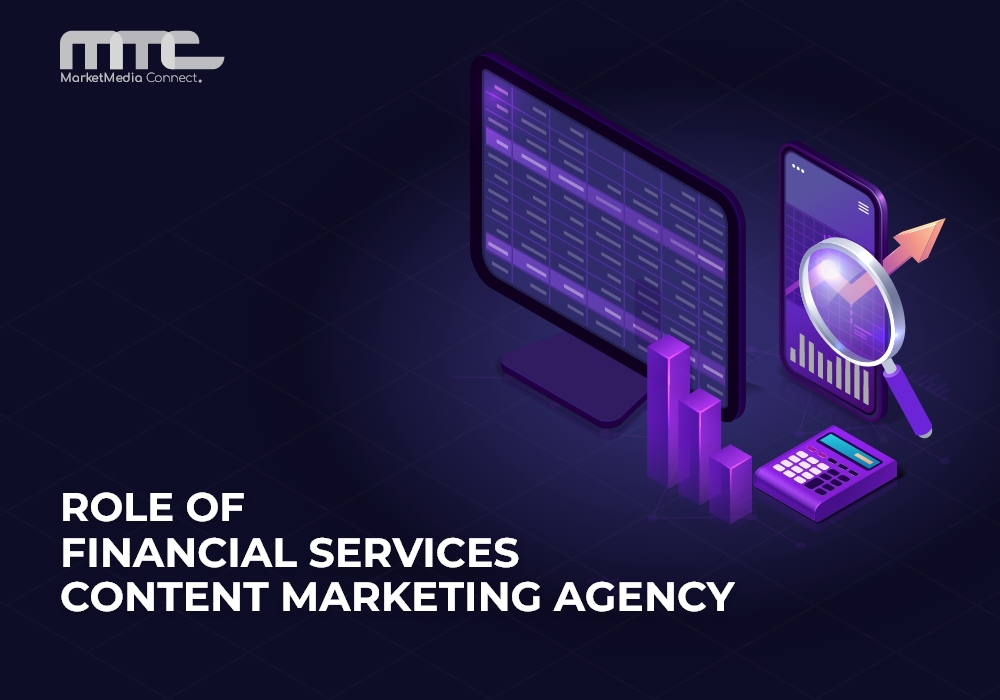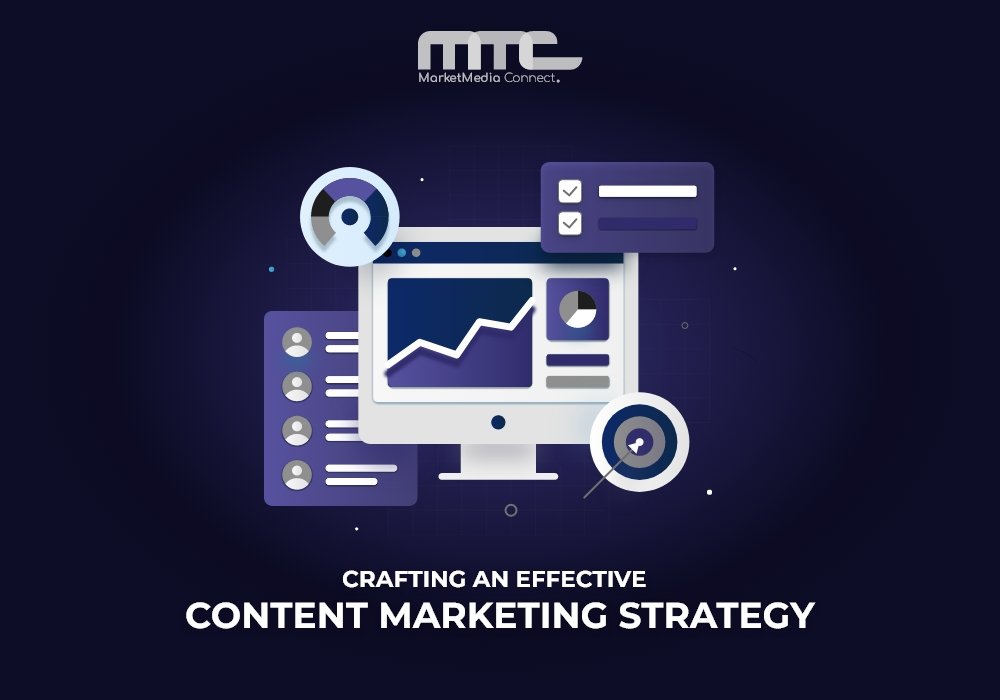Content
A Guide to Content Marketing for Financial Services and Investor Relations
Content marketing has quickly become an essential tool for financial services and investor relations professionals in today’s digital era. Financial institutions face complex regulatory requirements that make connecting with their audience and building trust imperative. Mastering content marketing for financial services firms isn’t only beneficial–it’s an absolute must!
This blog post serves as a comprehensive guide on implementing content marketing for financial services, the role of specialized agencies, and crafting an effective investor engagement strategy.
Defining Content Marketing in the Financial Sector
Before diving in deeper, let’s define content marketing in financial services. Content marketing differs from traditional advertising in that it creates and distributes value-rich, consistent information in order to attract and keep an audience. For financial institutions, this means providing investors and clients with relevant updates that cater directly to their unique needs and concerns.
Why Content Marketing Is Essential for Financial Services
The financial services industry faces many unique challenges. From stricter regulations, rising consumer skepticism, and an abundance of options, highlighting your product or service can become challenging. Content marketing for financial services aims to address these obstacles by building trust and credibility among consumers – as well as demystifying complex products or services making them more approachable for them.
Role of Financial Services Content Marketing Agency

To take an industry-specific approach, many organizations turn to a financial services content marketing agency for assistance. These agencies bring industry expertise that an in-house team may lack; they can guide clients through complex regulations while developing compelling brand narratives.
Agency’s typically possess tools to measure metrics, analyze data, and provide actionable insights. Furthermore, agencies offer strategies and implementation plans for marketing campaigns to best suit your unique goals.
Key Benefits of Content Marketing for Financial Services
Establishing Authority: Content marketing helps financial institutions establish themselves as experts in their field and build trust and credibility among audiences by sharing insights and knowledge with them.
Engaging Your Audience: In an industry built on trust, engaging content helps establish a connection with investors and clients – keeping them informed and interested in your services.
Content Marketing Can Be Compliance-Friendly: Contrary to popular belief, content marketing can be compliance-friendly; by developing material in accordance with regulatory guidelines using approved strategies and processes.
Employing Different Formats and Channels in Financial Services Marketing
Exploring Written Content: Articles, Blog Posts and Whitepapers
Financial services content marketing relies heavily on written content to educate and engage your target audience. Articles, blog posts and whitepapers offer great ways of sharing valuable insights, industry updates, expert opinion pieces as well as tips for financial planning or explaining complex investment strategies – well-written material can establish authority while building trust with readers.
Utilizing Visual Content: Infographics, Videos and Presentations
In an age where attention spans are shrinking rapidly, visual content has become a powerful way of engaging and holding the attention of your target audience. Infographics, videos and presentations allow you to break down complex financial concepts into easily digestible formats that visually appeal to viewers; infographics present statistics visually engagingly while videos and presentations showcase your knowledge through dynamic storytelling techniques. Get creative and use these visual formats effectively to deliver your message efficiently and leave an everlasting impression with your viewers!
Implementing Social Media and Influencer Marketing
Gone are the days of financial services marketing limited to traditional channels; social media has revolutionized how we engage with our audience, providing content marketing opportunities like no other platform could. Establish a powerful social media presence on platforms that resonate with your target audience, such as LinkedIn, Twitter or Facebook. Share written and visual content to spark discussions among your followers and keep in contact. Explore leveraging influencer marketing by teaming up with industry experts and thought leaders. Influencers can amplify your message, enhance brand credibility, and broaden reach – harness the power of social media and influencer marketing to connect more intimately and impactfully with audiences!
Content Marketing Challenges in Financial Services
Although content marketing in financial services presents numerous advantages, it’s also essential to recognize its challenges:
Navigating Regulatory Hurdles: The financial industry is heavily regulated. Navigating these requirements while creating engaging content can be an arduous balancing act.
Data Security and Privacy: Financial institutions deal with sensitive client data that must remain protected at all costs. Assuring data protection and privacy in content marketing efforts is therefore an absolute requirement.
Content Quality: In an age of information overload, standing out requires creating top-tier content. But maintaining its quality while producing large volumes can be dauntingly difficult.
Now that we’ve laid a strong foundation, let’s create an effective content marketing strategy tailored to the financial services sector.
Crafting an Effective Content Marketing Strategy

Identify Your Target Audience
Content marketing strategy must begin by understanding who your target audience is. In the financial industry, that could include investors, high-net-worth individuals, businesses and even regulatory bodies – knowing their needs, pain points and preferences is integral in crafting content that resonates.
Setting Clear Goals and Objectives
What goals and objectives do you hope to attain with your content marketing initiatives? Do you seek to raise brand recognition, bring in new clients or strengthen relationships already in place? Defining clear goals will serve as a guideline and allow for easier measurement of success.
Competitive Analysis in Financial Services Content Marketing
Gain valuable insight by studying your competitors’ content strategies. Find gaps that exist among their content offerings and identify opportunities to differentiate yourself and create value at your institution.
Selecting Appropriate Online Platforms for Distribution
Finding suitable platforms to distribute your content is of utmost importance, from LinkedIn for B2B engagement to social media for wider distribution – each platform needs its own specific strategy and approach.
Content Calendar and Planning
Content marketing relies heavily on consistency. Create a content calendar with the topics, publishing schedule, and team members responsible. Planning will ensure an uninterrupted stream of relevant material that supports your strategy.
Enhancing Investor Relations through Content Marketing
Financial services companies rely heavily on investors as an audience, and content marketing can significantly boost investor relations by crafting an investor engagement strategy tailored to building trust, attracting investments, and weathering financial storms more resiliently.
Content within this category could range from simplified quarterly reports, interviews with key executives discussing company strategy or behind-the-scenes looks at operations.
Measuring Content Marketing ROI in Financial Services

Assessing your content marketing returns is of utmost importance in the Financial Services industry. Key Performance Indicators (KPIs), like website traffic, engagement rates, lead conversions, and lead scoring provide detailed analyses of its success; additional targeted analytics tools offer even deeper insights.
Conclusion
Content marketing can provide organizations in financial services a vital way out of their challenges and competition, helping build brand credibility, engage audiences across different channels, and attract crucial investments. Organizations may either utilize an outside content marketing agency for financial services or build in-house capabilities with this goal in mind: to produce engaging and impactful content to advance business objectives.
No matter your current strategy or whether it’s your inaugural foray, now is an opportune moment to invest in financial content marketing and create an investor engagement strategy for optimal business success.
With this guide as your resource, you are better prepared to launch an effective content marketing campaign in the financial services sector.









